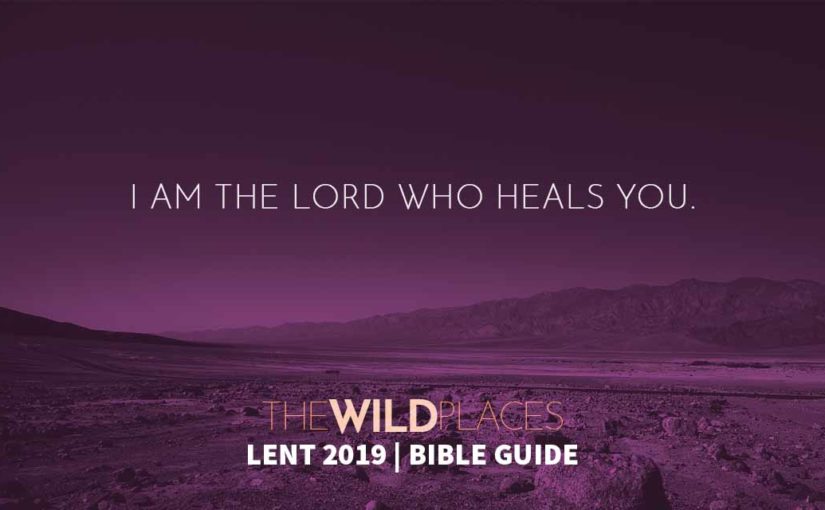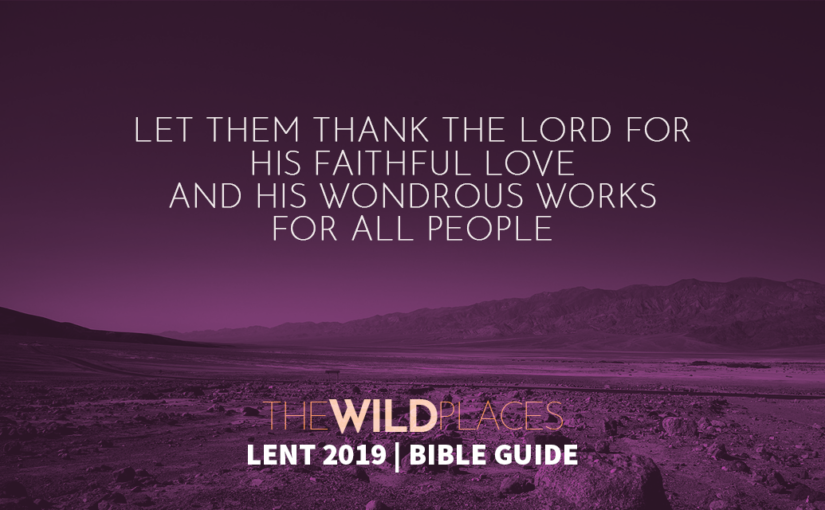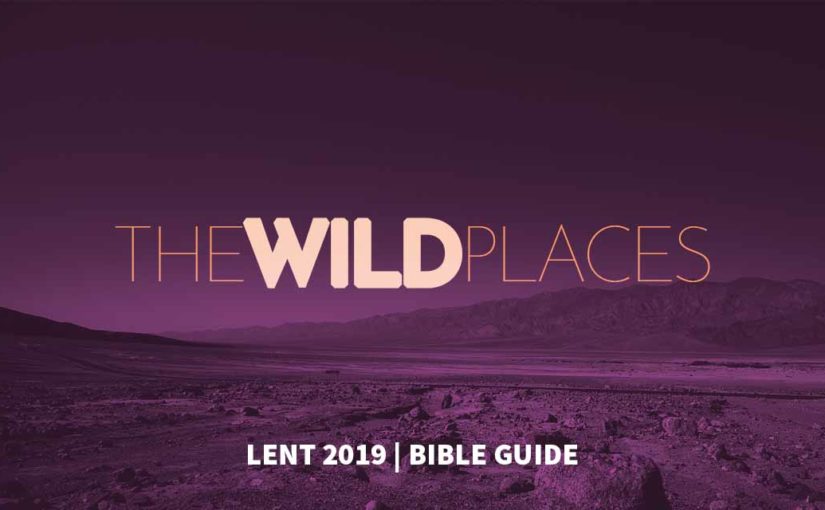Tuesday, March 12
We’ll spend the first two weeks of Lent reading passages from the wilderness narratives that sit between Israel’s deliverance from slavery and their arrival in the Promised Land. The founding stories of this people of faith include rescue and promise, but also the chaos and confusion of wild places.
Exodus 15:22-27 (CEB)
22 Then Moses had Israel leave the Reed Sea and go out into the Shur desert. They traveled for three days in the desert and found no water.23 When they came to Marah, they couldn’t drink Marah’s water because it was bitter. That’s why it was called Marah. 24 The people complained against Moses, “What will we drink?” 25 Moses cried out to the LORD, and the LORD pointed out a tree to him. He threw it into the water, and the water became sweet.
The LORD made a regulation and a ruling there, and there he tested them. 26 The LORD said, “If you are careful to obey the LORD your God, do what God thinks is right, pay attention to his commandments, and keep all of his regulations, then I won’t bring on you any of the diseases that I brought on the Egyptians. I am the LORD who heals you.” 27 Then they came to Elim, where there were twelve springs of water and seventy palm trees. They camped there by the water.
Points of Interest
- The Shur desert lies to the northeast of Egypt. It’s a dry place on the road away from the fertile Nile delta. The word “marah” means bitter. The final place, Elim, is likely connected to the ancient Canaanite root word for god, “El,” meaning this name for this oasis might mean something like “Land of the gods.” Coming out of a hard and dry season of life, it’s easy to lose our way in bitterness before we reach the land of God.
- I find Moses and God’s reactions to bitterness to be interesting. Moses is stressed out, as leaders usually are when managing bitter or angry people. That’s normal God is not stressed out. God recognizes that embittered people need to taste something sweet, and God’s glad to provide that.
- Let’s notice the bargain God does and doesn’t strike. God doesn’t criticize them for their bitterness or tell them to never again feel embittered. God says to them in this wild, empty place: Follow me, do what I say. I know the way out of here. I am the one who heals you, again and again, as I just did. God’s response to our problems is healing, not judgment.
- The people have the good sense to not just fuel up at the oasis and move on, but to camp out for a while. In busy, hectic times, it seems to me we rush on from most of our sweetest experiences of relief, without pausing to enjoy and savor a bit. Life is a journey – we always keep moving – but there’s time and space to camp out a bit and enjoy the best parts.
A Direction for Prayer
Pray for any of your friends or family who seem lost or embittered, that the God who heals would drop that tree of sweetness into their lives, bringing the kindness and relief they need.
Spiritual Exercise of the Week
Honest Prayer and Requests for Encounter, Discovery, and Rescue – This week, you are invited to name a place in your life where you are out of your element, beyond your resources, or out of control. Tell God about this. How is it that you want to experience God’s faithful love with you? What do you hope to learn in this season? How is it that you would like God to rescue you?




